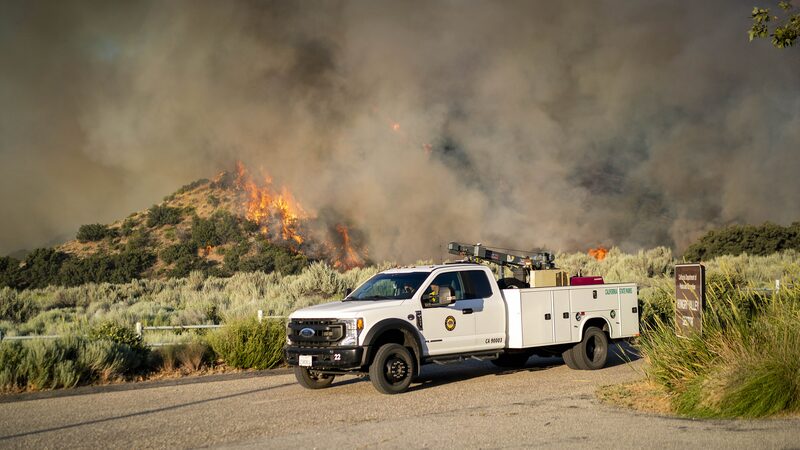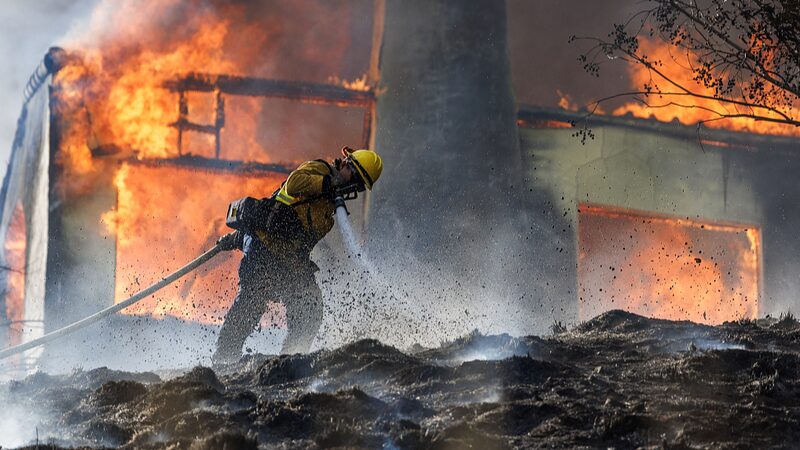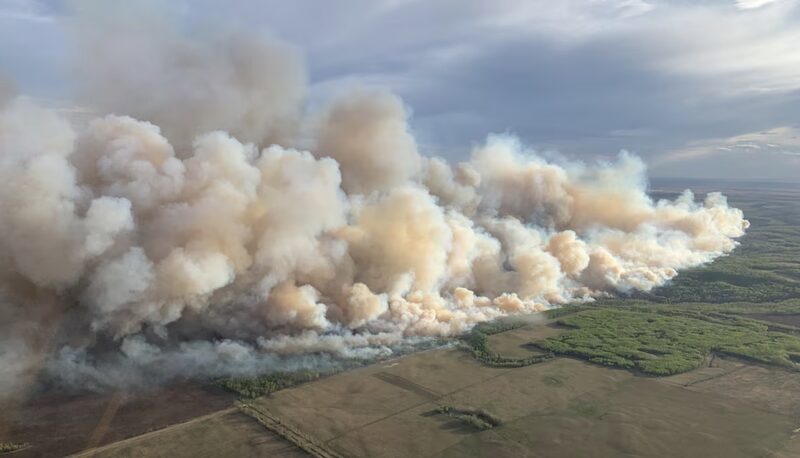Massive wildfires erupted on Saturday across Turkey’s western province of Izmir, forcing evacuations and threatening historic sites. Blazes ignited in three separate locations—Menderes, Selcuk, and Cesme—prompting urgent action from firefighters battling harsh windy conditions.
The fires began unexpectedly, quickly consuming forested areas and spreading towards residential zones. In Menderes, the entire Camonu neighborhood was evacuated as flames approached dangerously close to homes nestled within the forested landscape. Residents were hurriedly moved to safety, carrying with them only essential belongings.
Meanwhile, in Cesme, a fire in a grassy area led authorities to temporarily close the highway connecting Izmir to this popular coastal resort town, disrupting travel and raising concerns among tourists and locals alike. The swift response aimed to prevent the fire from reaching inhabited areas and to safeguard the thousands who flock to Cesme’s beaches each summer.
Selcuk, renowned for the ancient city of Ephesus—a UNESCO World Heritage site and one of Turkey’s most visited tourist destinations—also faced imminent danger as the fires encroached. The historical significance of Ephesus heightened the urgency of firefighting efforts, with teams striving to protect both the modern town and its precious archaeological treasures.
Turkey’s Ministry of National Defense announced on social media platform X that military resources have been mobilized to support firefighting operations. Three Cougar-type helicopters and two CH-47-type helicopters were deployed, conducting aerial water drops to suppress the spreading flames.
Firefighters on the ground, supported by volunteers and local residents, worked tirelessly to contain the fires. Efforts were challenged by strong winds, which fanned the flames and complicated containment strategies.
Authorities are investigating the cause of the wildfires, which have become increasingly frequent in Turkey during the hot, dry summer months. Climate experts warn that such incidents may become more common due to changing weather patterns, emphasizing the need for robust preventive measures and effective emergency responses.
The situation remains fluid, with firefighting efforts ongoing. Residents and visitors are advised to stay informed through official channels and to follow any directives from local authorities.
Reference(s):
cgtn.com






